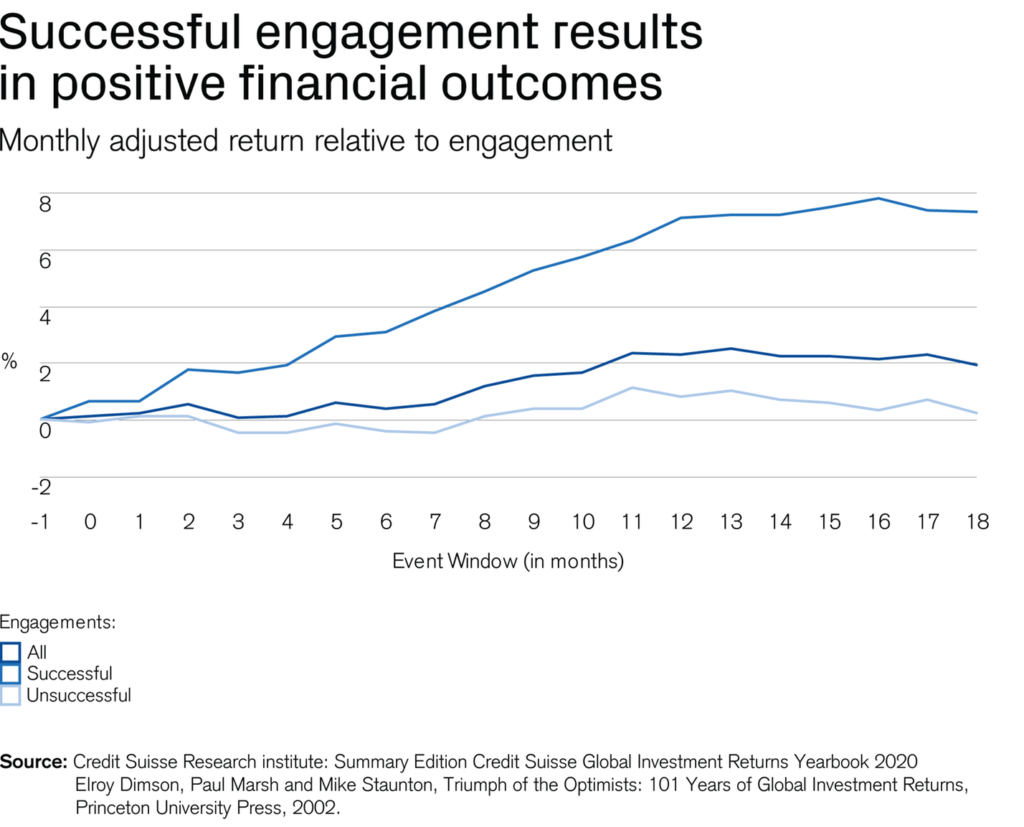This original article can be found, here on Credit Suisse’s website.
The economic value of global ocean assets is around USD 24 trillion, making it the seventh-largest economy in the world. A sustainable blue economy is not just crucial for planetary and human health – it also makes good business sense. Yet, with the acceleration of climate change, plastic pollution, and overfishing, the ocean’s condition is deteriorating. Active investor engagement can help to turn this crisis around.
According to research carried out by Credit Suisse and Responsible Investor, over a third of large institutional investors see the sustainable Blue Economy as one of the most important sustainable investment topics in 2020, yet it remains one of the least invested themes across impact investors due to the lack of available solutions.
Increasing numbers of private and institutional investors are keen to support companies that are already good stewards of the ocean. There is also a growing trend of using the influential position of shareholders to impact positively the activities and behavior of companies by holding them accountable to ESG standards. This concept of “engagement” is one of the fastest growing responsible investment strategies across the globe. In the context of the blue economy, opportunities for investor engagement include climate change mitigation and adaptation; maritime renewable energy; plastic pollution prevention; and sustainable fisheries and aquaculture.
Shareholder engagement is driving change
In 2011, a group of 20 investors (all signatories to the UN Principles for Responsible Investment) engaged with 40 global companies across the seafood value chain, asking about their sustainable sourcing practices. In 2016, investors in UK supermarket chain Tesco urged the retailer to sell only fish and seafood certified as sustainable by the Marine Stewardship Council. Tesco, the UK’s biggest fish seller, now has a sourcing policy aiming for 100% of its seafood to come from certified sustainable sources and is involved in industry initiatives promoting transparency, such as the Ocean Disclosure Project.
Sustainable investing: shareholder engagement as an ESG strategy
Engagement is the most direct way to create an impact within listed equities. Influencing corporate behavior through a proactive engagement approach can produce a virtuous cycle, leading to positive social, environmental, and financial results, and reducing risks to both our oceans and business. Moreover, it can generate returns and mitigate risks for investors.
There are relatively few studies on the financial impact of shareholder engagement. However, they all demonstrate that successful engagement results in positive financial outcomes. For details visit Credit Suisse Research Institute’s Global investment yearbook 2020.

Four ways investor engagement can impact a company’s performance
- Better competitive positioning – shifting to more sustainable business models is appealing to consumers.
- Reduced reputational risks – better governance leads to the implementation of anti-money laundering practices and avoidance of labor strikes, protests, or boycotts.
- Getting ahead of regulatory risks and avoiding carbon pricing costs or pollution taxes thanks to innovative equipment and infrastructure.
- Improving ESG ratings/rankings with proper disclosure of material ESG issues.
Four strategies to make engagement successful
- A strong business case. Engagement is most effective when a company is presented with a strong business case as to why it should take the suggested action.
- Coalition building. Most shareholders own a small proportion of the shares and therefore have limited formal power. Shareholders can consider building coalitions and pool their influence to send a stronger signal to companies. The largest coalitions of investors can gather trillions of dollars in assets and sometimes hold a majority of shares in a company.
- Peer pressure. Companies are often unaware of how their competitors perform on ESG and impact, and peer pressure can be a powerful driver. Shareholders often benchmark the sustainability performance of a sector and then engage with the laggards, highlighting their peers’ outperformance.
- Escalation. Shareholder engagement around sustainability is a process that begins with emails and progresses to calls, in-person meetings, building coalitions of investors, and ultimately, if all else fails, the filing of shareholder resolutions at company AGMs.
Ocean sustainability is key for future growth. Investors can play a part by engaging in sustainable blue economy.
A healthy and abundant ocean is critical to everyone’s survival and economic prosperity worldwide. With sustainability at the forefront of consumer, investor, and company priorities, there has been an increasing focus on reducing the burden on the ocean. Corporate investors engaged in SDG14 can reduce risks to both the ocean and the company, enhance competitiveness, and improve ocean health for future growth.
At Credit Suisse, we expect the Blue Economy to become increasingly important as an investment theme over the coming years. There are many ways investors can actively engage in improving ocean health and generate returns. Read our report Engaging for A Blue Economy to find out more.







